In today’s world, where many people face challenges related to displacement and adapting to new circumstances, it is essential to find practical tools for supporting psychological well-being. With this goal in mind, on June 13, 2025, at 11:30 a.m. in Room 315 C, an art therapy session titled “Harmonizing the Self” was held within the framework of the large-scale EU-funded international Erasmus+ KA220-ADU project “TRUST” – Trauma of refugees in Europe: An approach through art therapy as a solidarity program for Ukraine war victims (Grant No. 2024-BE01-KA220-ADU-000257527).
The project title is decoded as follows:
TRUST
T – Trauma
R – Refugees
U – Ukraine
S – Solidarity
T – Therapy
The project is co-funded by the EU and led by the Centre Neuro Psychiatrique St-Martin from Belgium, in partnership with the National University “Yuri Kondratyuk Poltava Polytechnic” (Ukraine), Greek Carers Network EPIONI (Greece), Fondazione Don Luigi Di Liegro (Italy), Lekama Foundation (Luxembourg), EuroPlural Project (Portugal).
Lesia Klevaka, PhD in Pedagogical Sciences, Associate Professor, and Acting Head of the Department of Psychology and Pedagogy, conducted the session.
The event participants had a unique opportunity to immerse themselves in the world of self-exploration and emotional healing through creative practices. The session began with a discussion on harmonising one's inner world, finding points of internal support and resources that help maintain calm during periods of stress and significant life changes. The facilitator explained how creativity can become a safe space for self-expression, emotional release, and effective recovery.
One of the key practices was the neurographic exercise “Harmonising the Self”. This technique allows for gentle processing of emotional tension, integrating thoughts, feelings, and the body into a unified whole. Through flowing lines and harmonious colour combinations, participants experienced inner calm and restoration, and were able to understand their deeper emotions better. Neurography is a powerful tool for those seeking to find inner balance and adapt to new realities.
Another method used during the session was a metaphorical associative card exercise called “The Image of a Woman”. This is a deep reflective technique that allowed participants to connect with their understanding of femininity, inner strength, vulnerability, and their role in life and society. Each participant chose a card that, in their opinion, best reflected the image of a woman resonating with their current state, emotion, or association. This was followed by a discussion during which participants explored the feelings evoked by the card, what the woman on the card is going through, how much they identified with her, and what strength or vulnerability she symbolised. This exercise helps to understand better personal inner images related to female identity, motherhood, freedom, strength, and tenderness. It creates a space for self-acceptance and dialogue between different aspects of the personality. Such techniques are especially valuable when working with themes of self-discovery, self-worth, and internal harmony, which are critically crucial for internally displaced persons who often experience the loss of familiar reference points.
The final practice was the art therapy exercise “Art Jar.” This technique helps to focus on one’s resources. Participants created a “jar” filled with visual symbols that represent everything that gives them strength, inspiration, and peace – these could be words, colours, images, or symbols. This resource-based drawing can be used in challenging moments as a reminder of one’s inner strengths and sources of support. These art therapy practices are invaluable tools for supporting psychological health and adaptation, especially for internally displaced individuals.
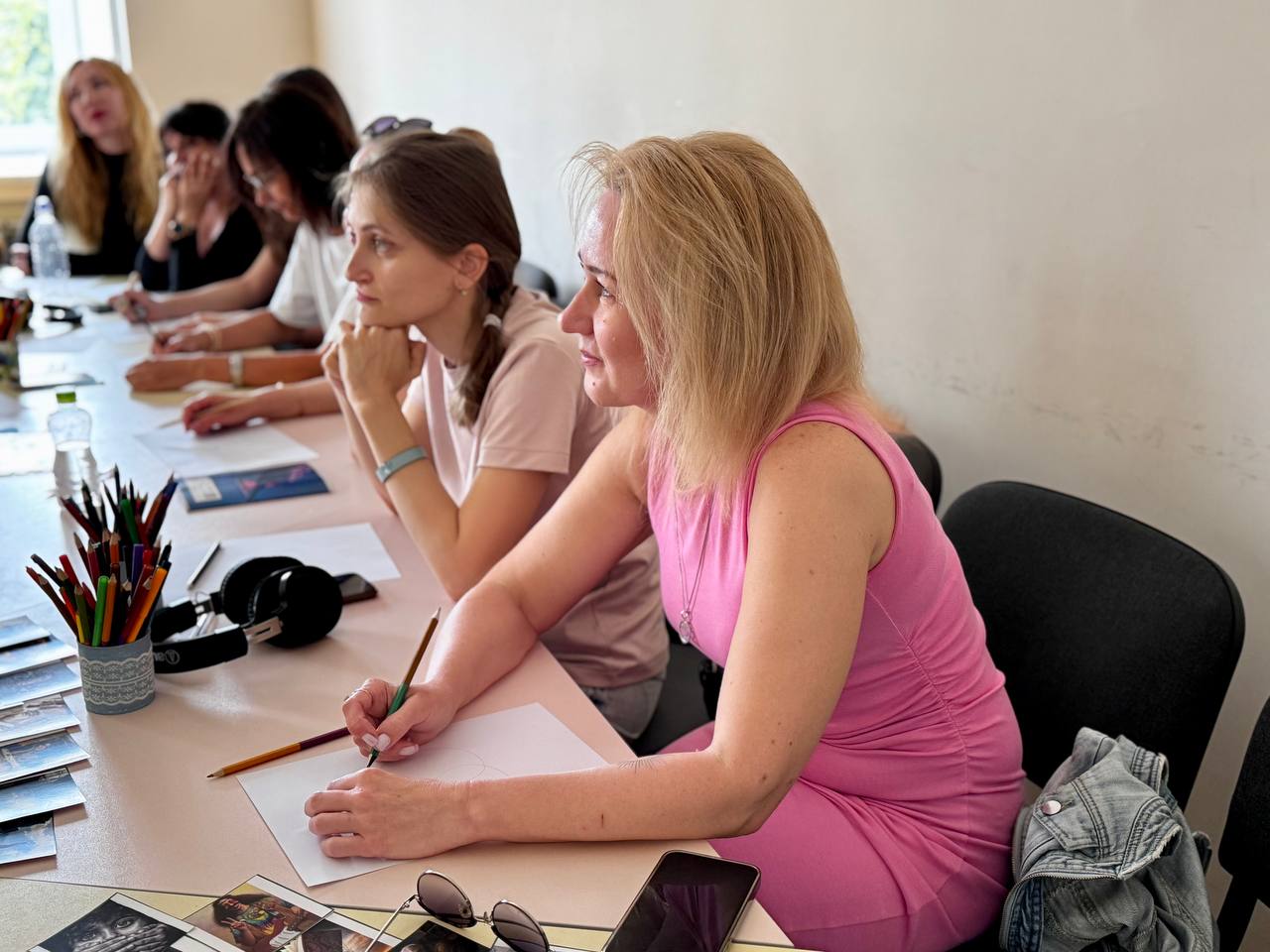
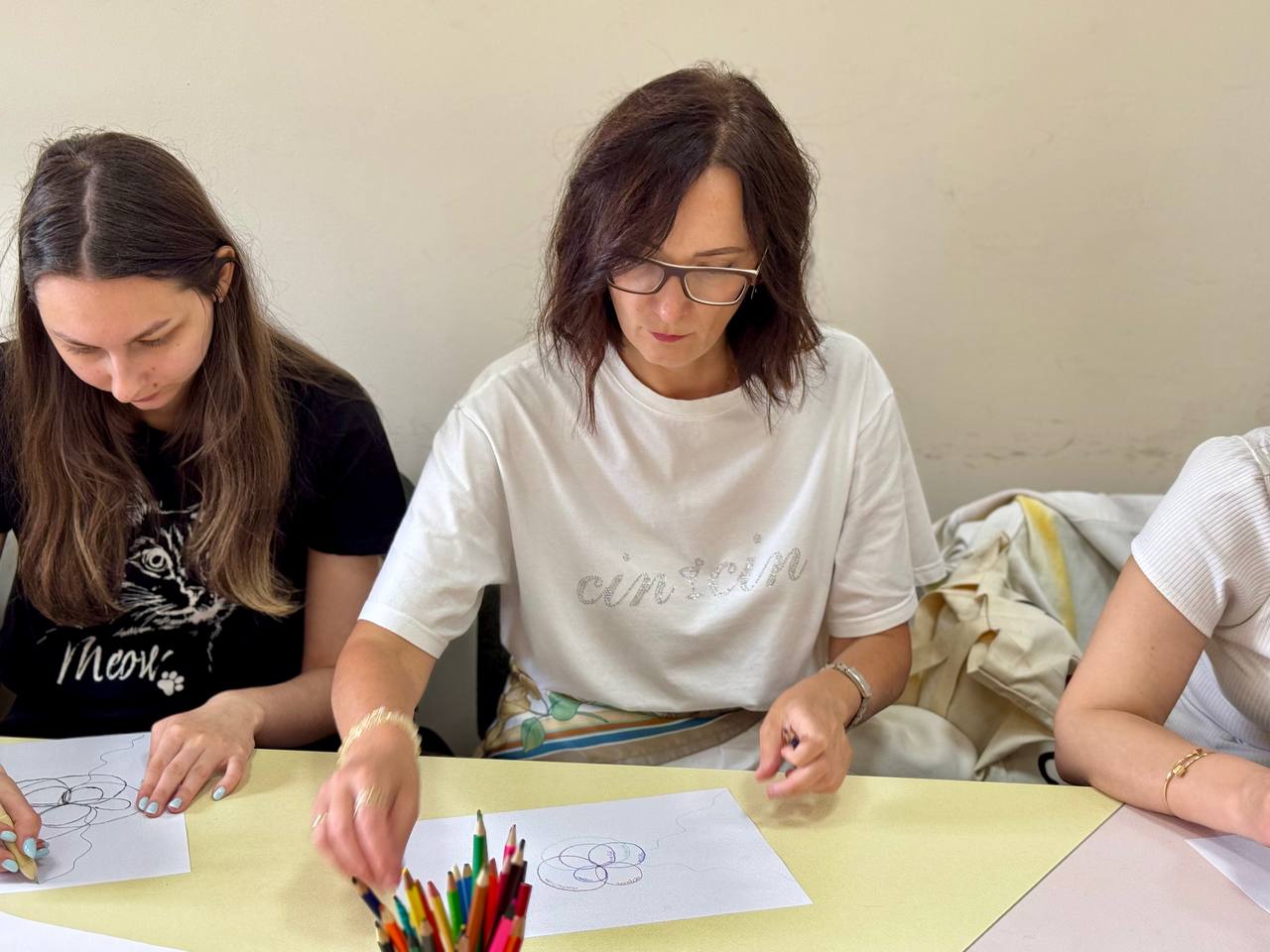
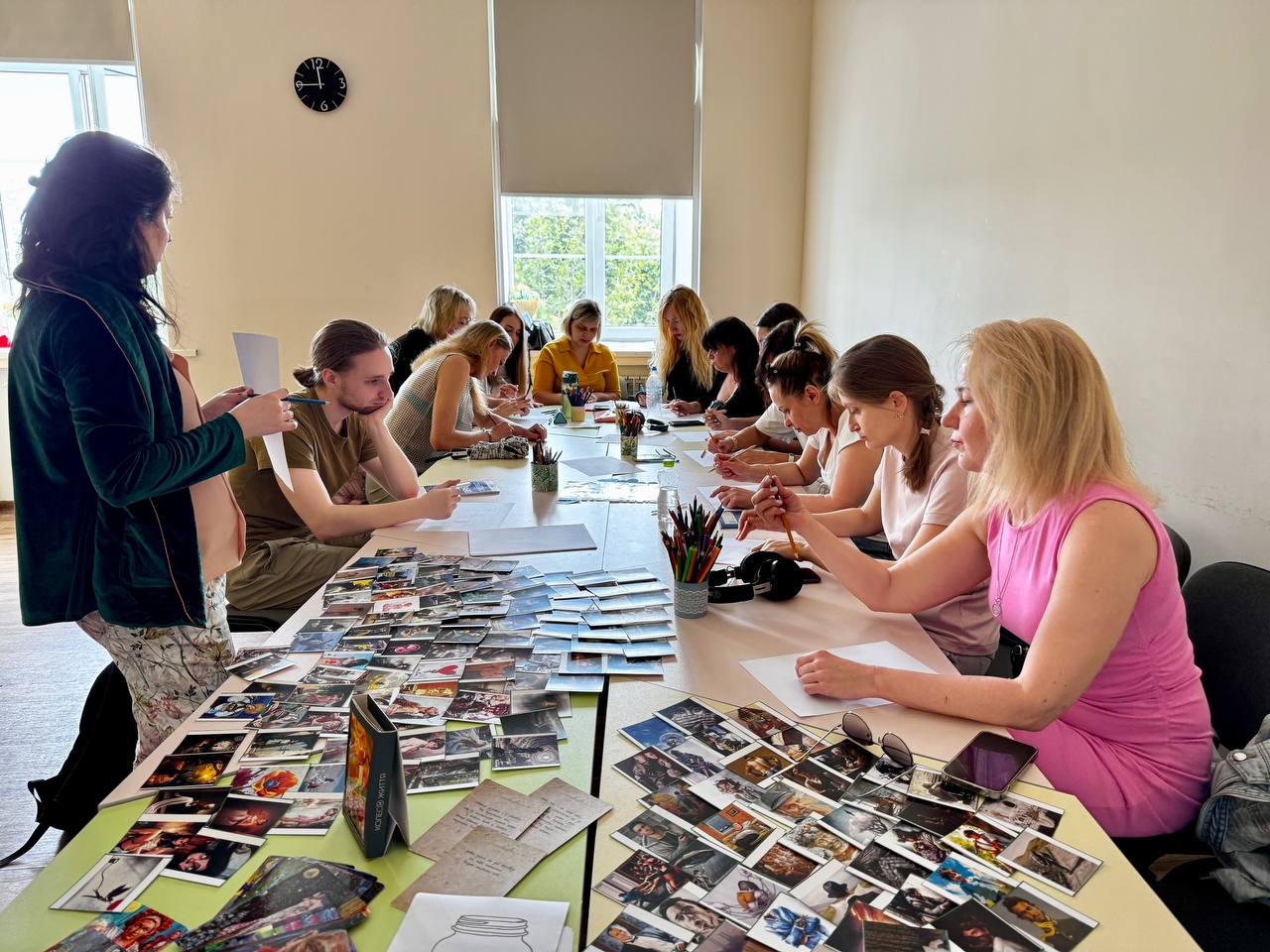
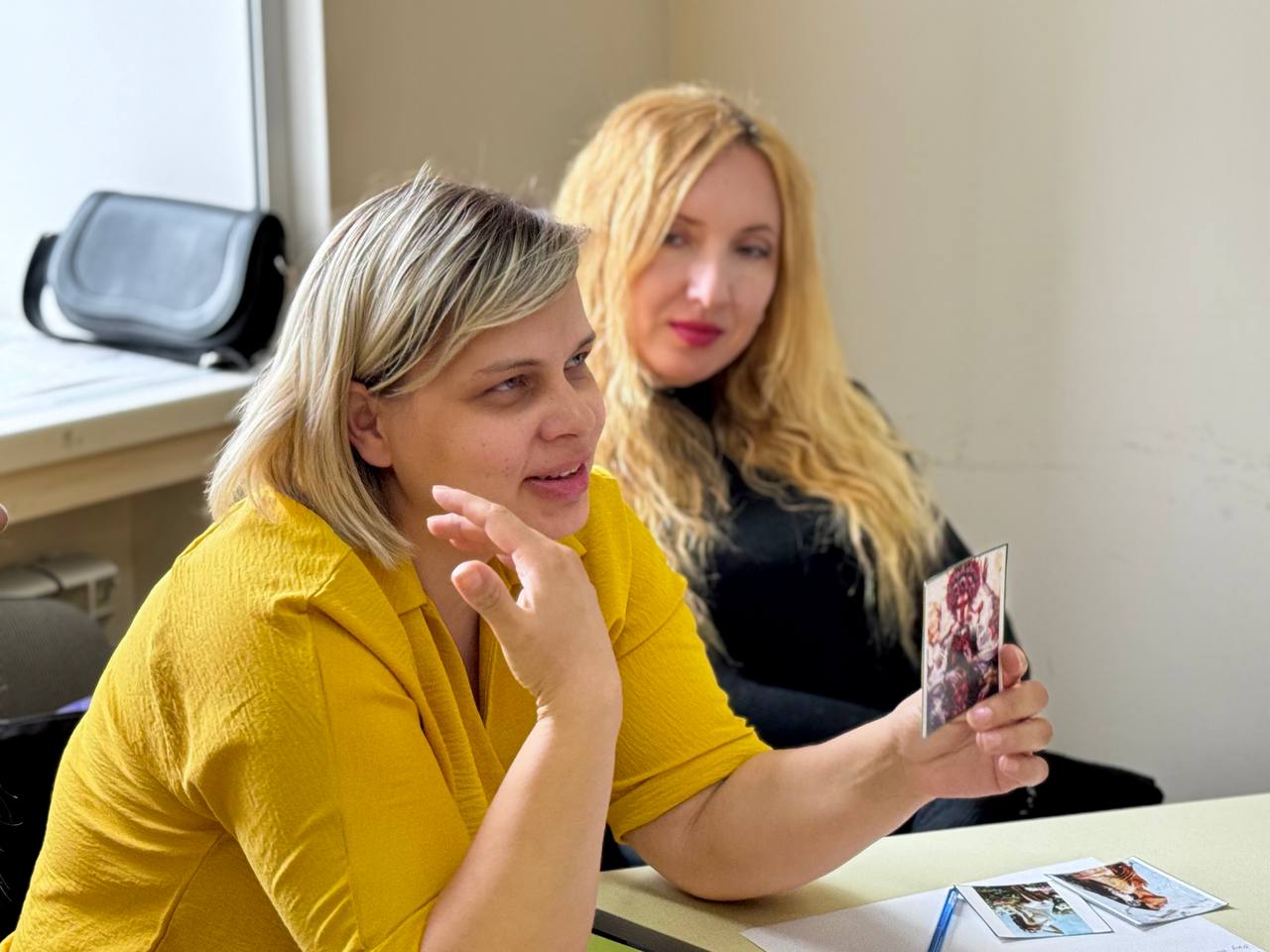
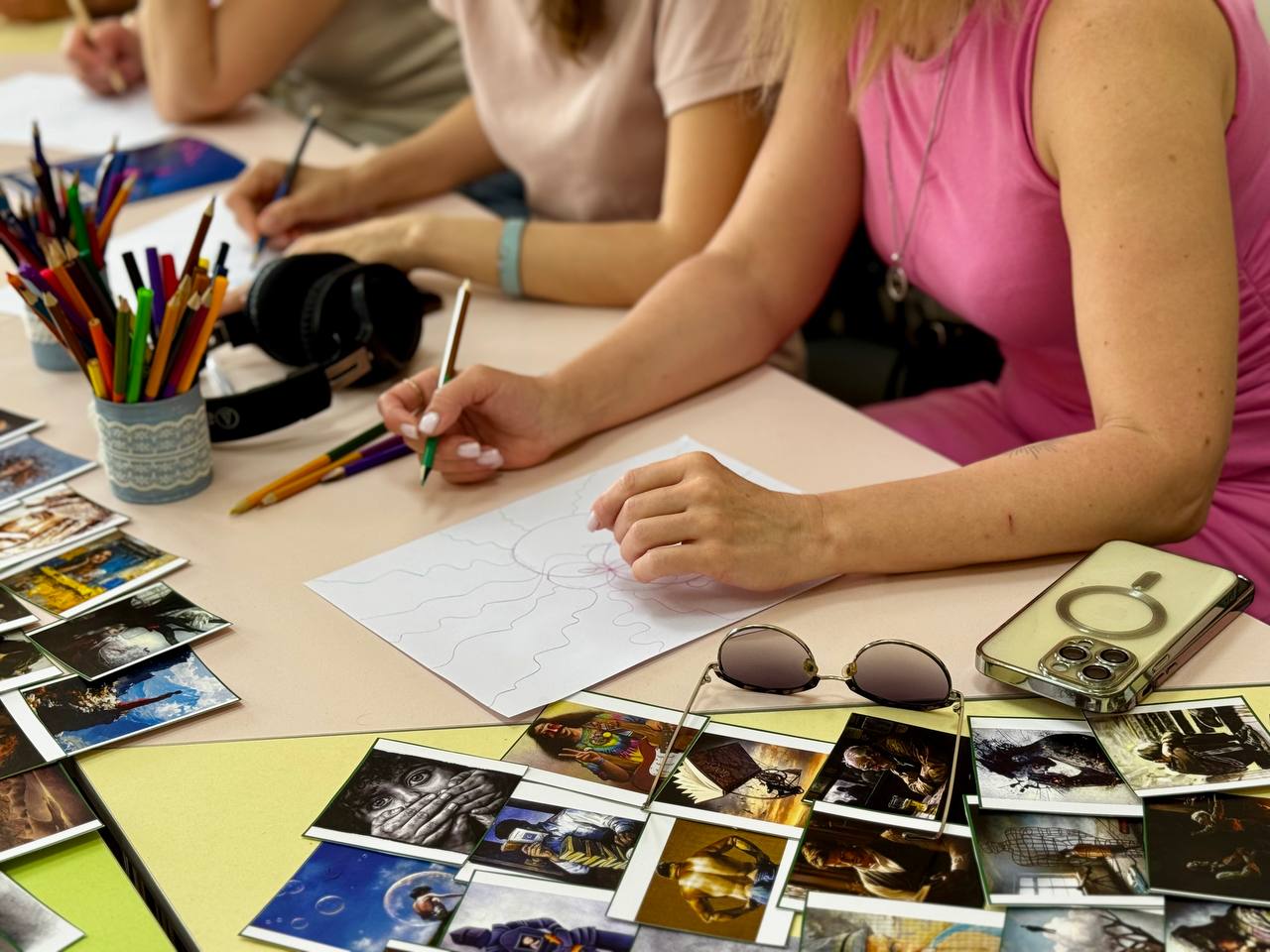
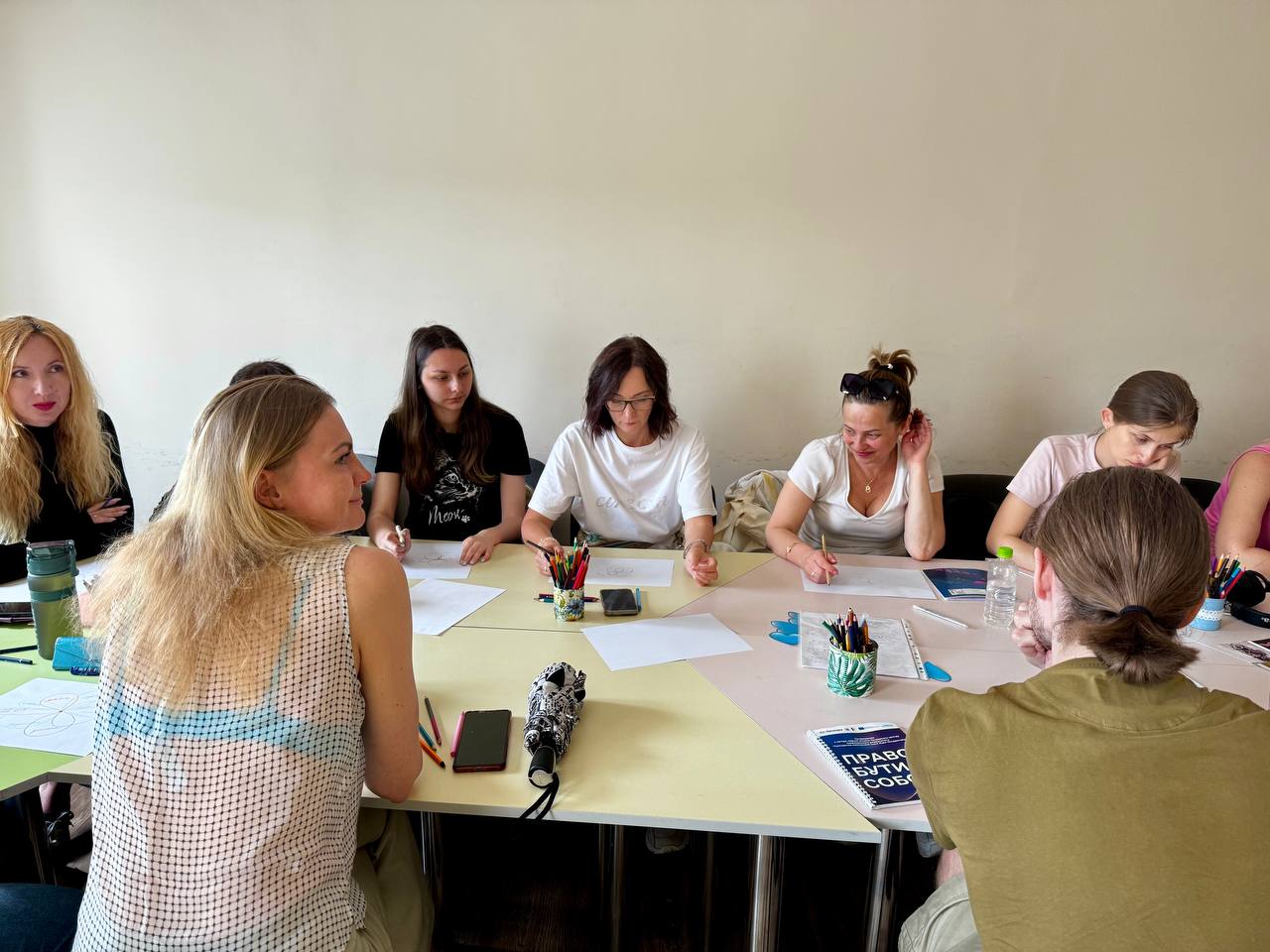
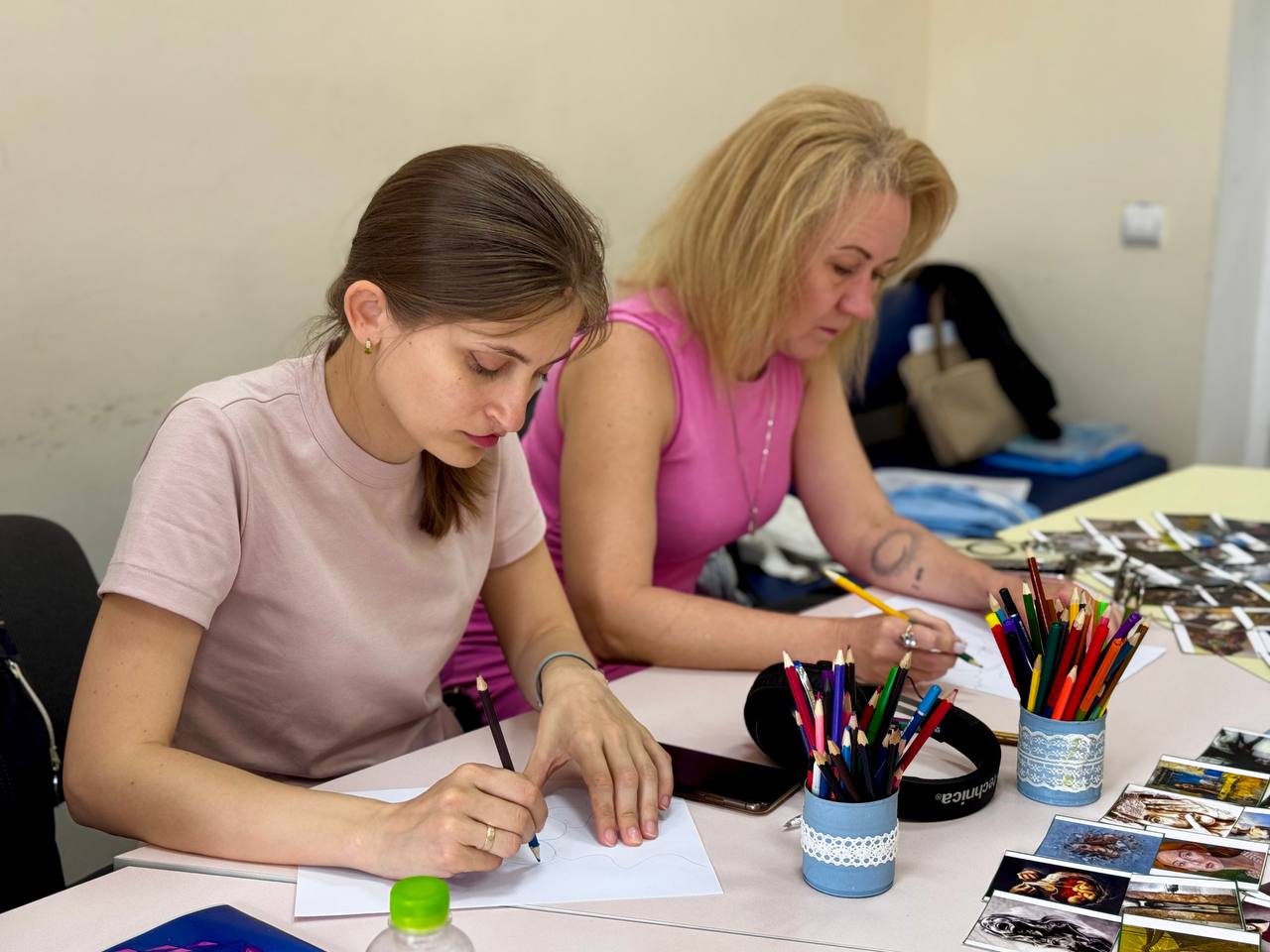
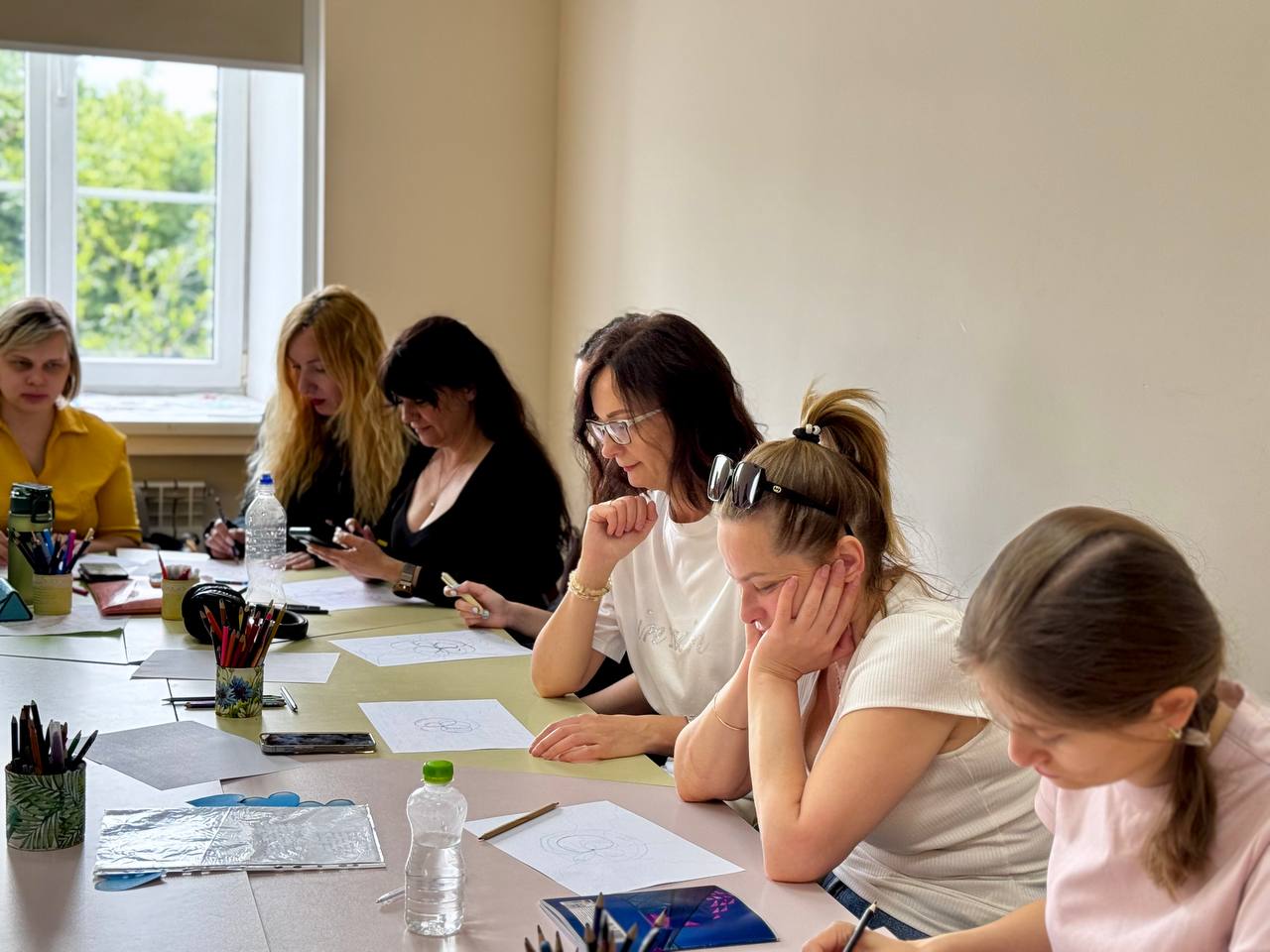
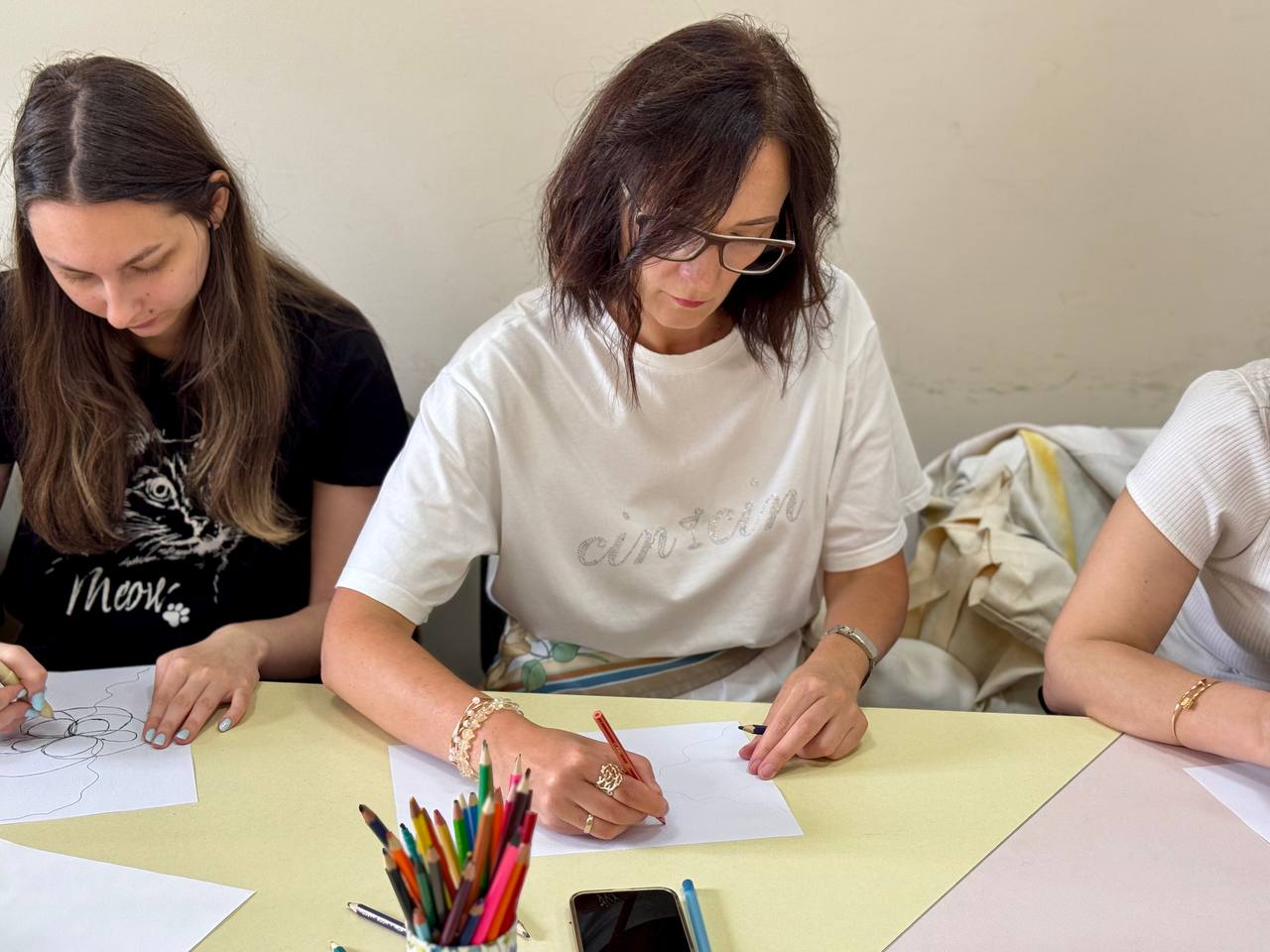
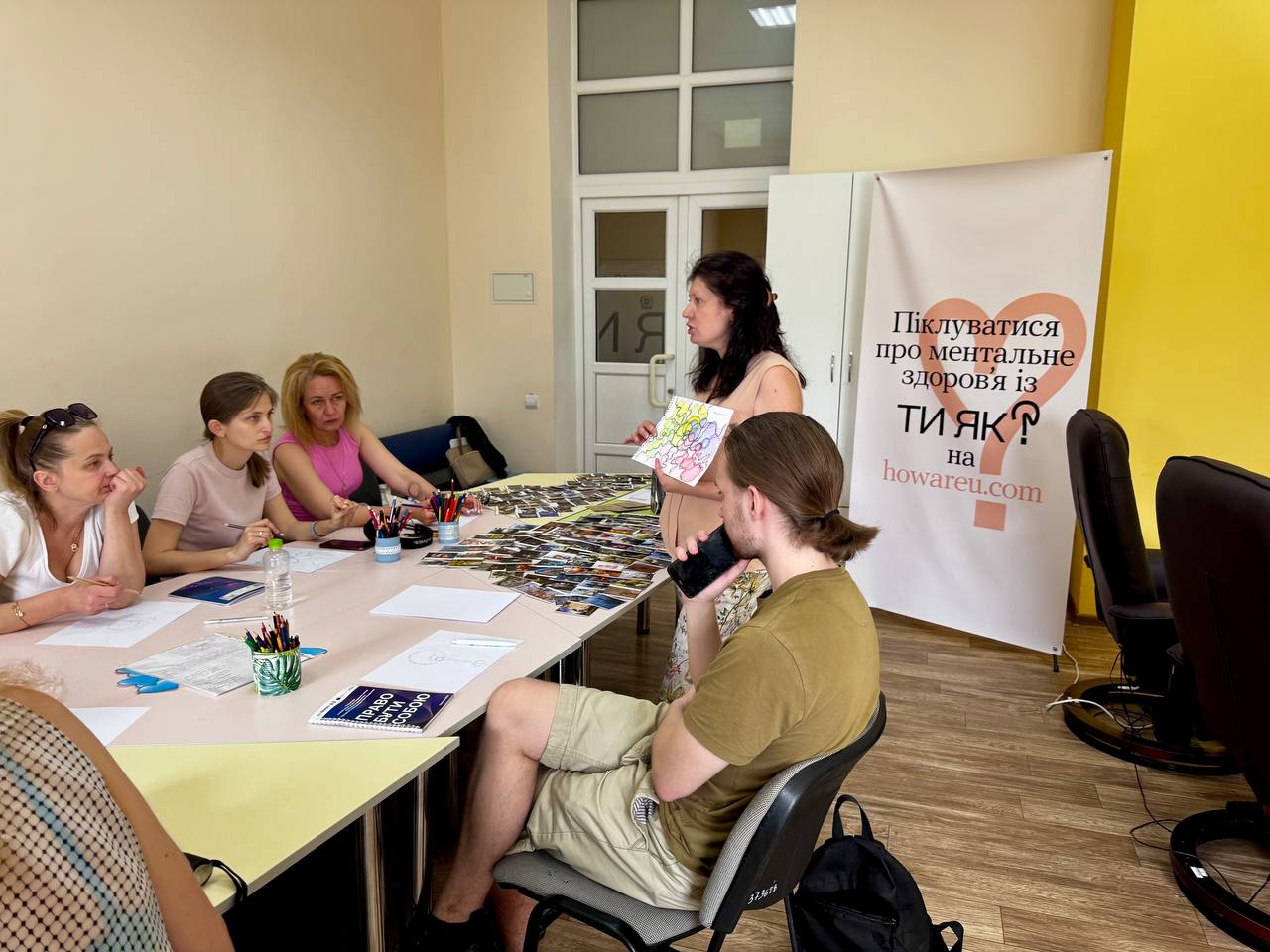
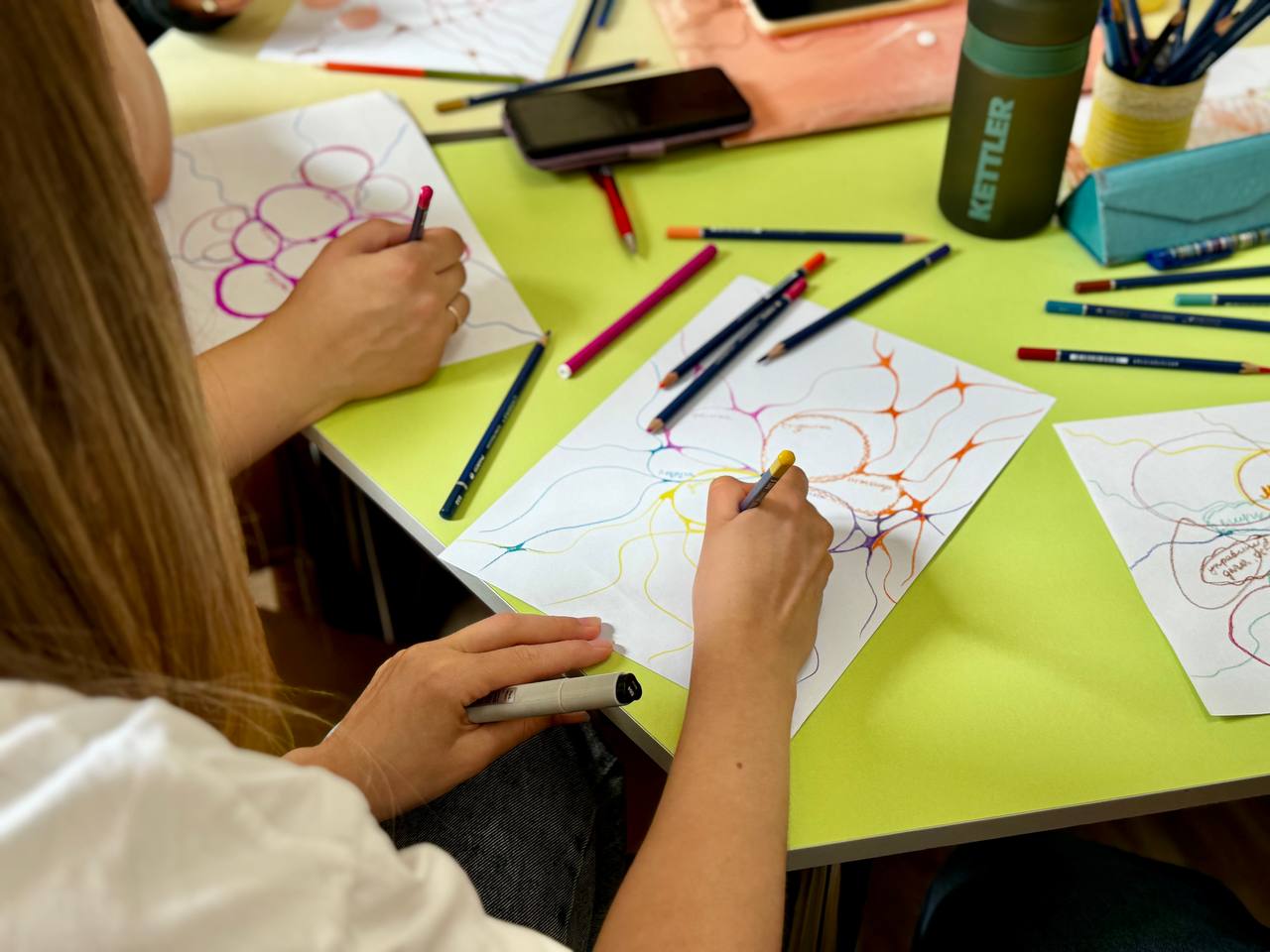
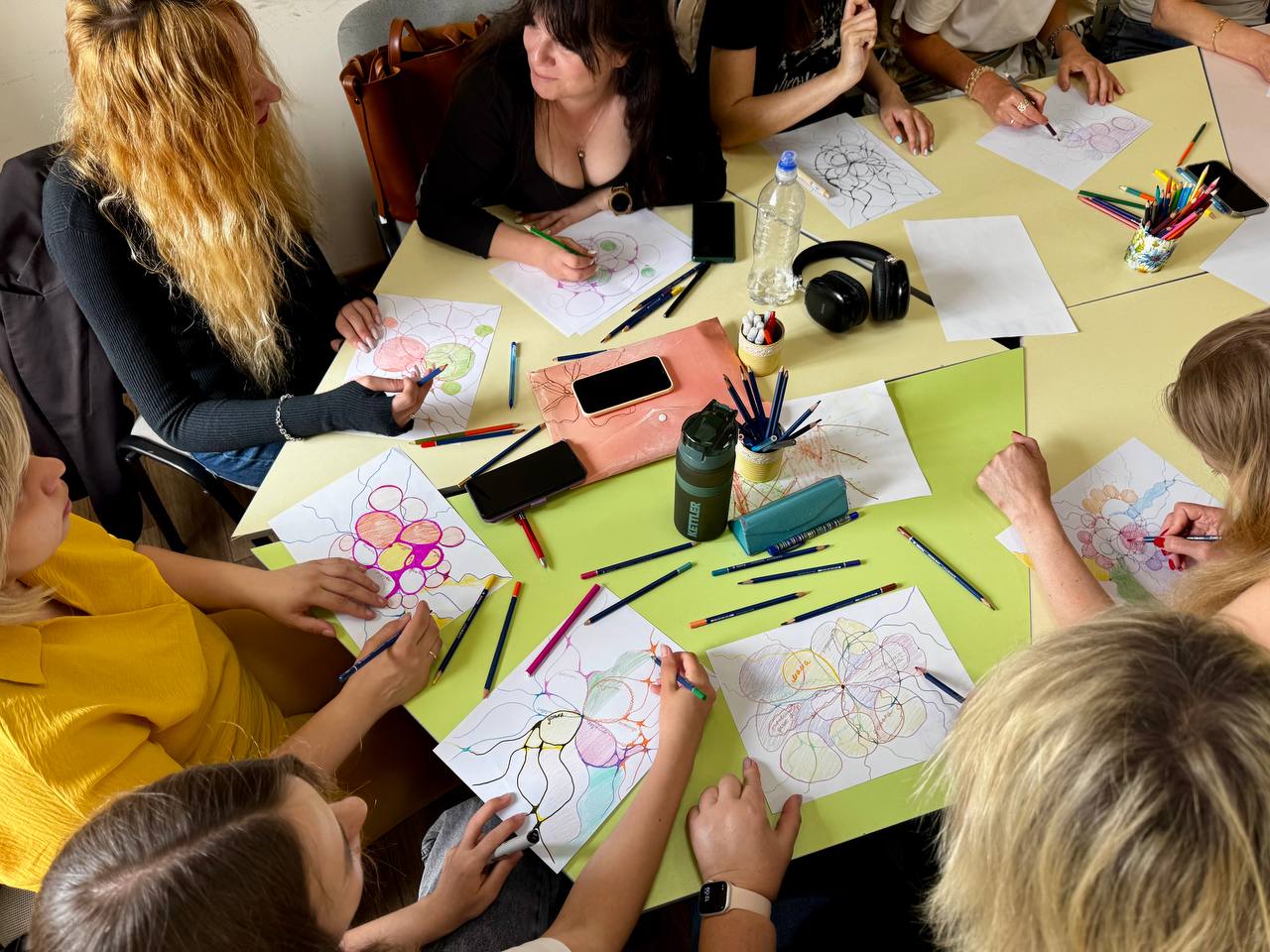
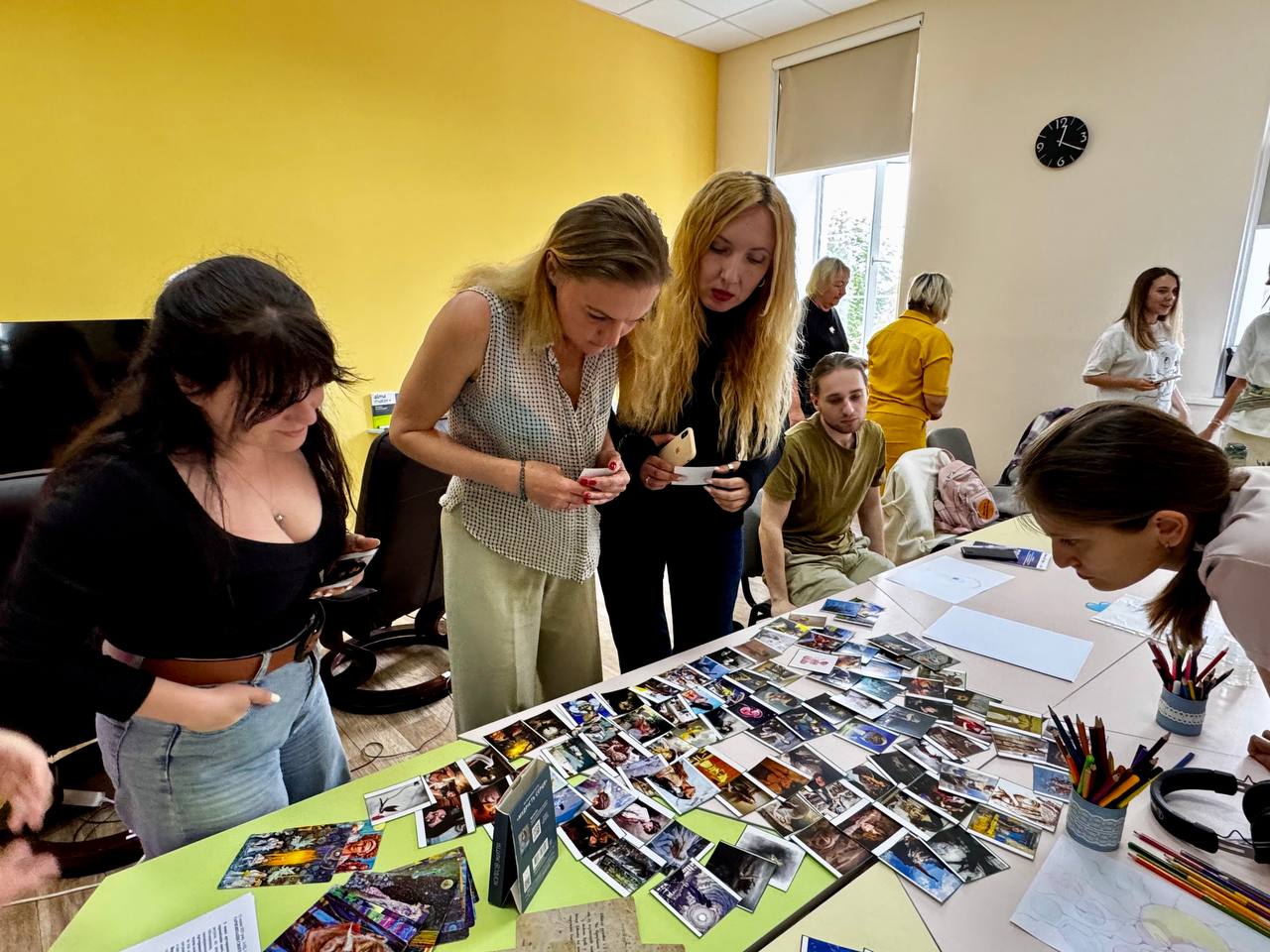
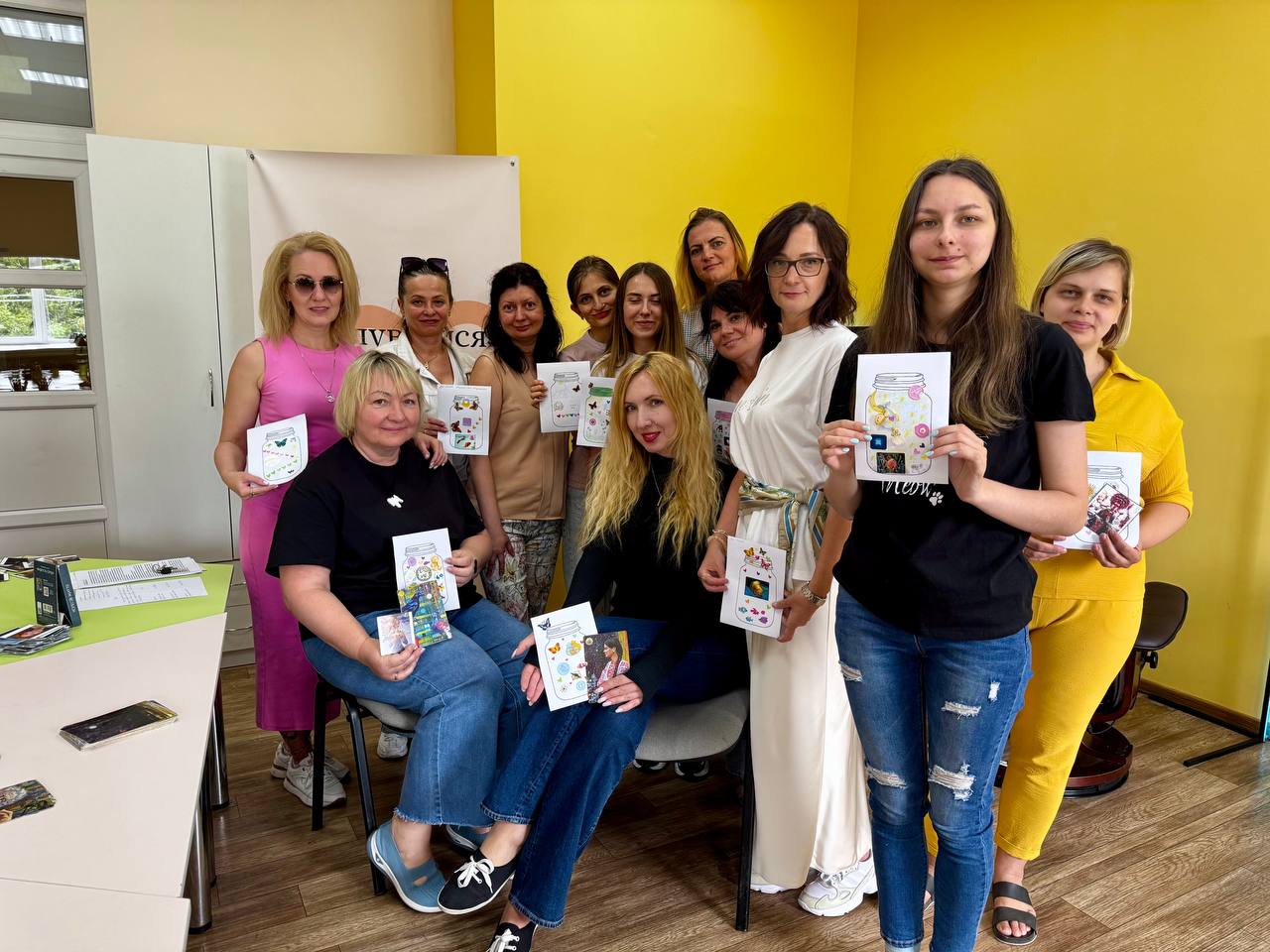
The art therapy session conducted within the Erasmus+ “TRUST” project is an essential step in providing psychological support and promoting emotional healing for people who have experienced traumatic events. Through a combination of deep philosophical reflection and practical art therapy techniques, participants gain tools to strengthen their inner resilience and find support within themselves, regardless of external circumstances.
As part of this project, a series of psychotherapeutic activities have already been implemented, having a noticeable positive impact on the mental health of participants who have experienced the loss of home, separation from loved ones, prolonged stress, and anxiety. Art therapy has helped reduce emotional tension, develop the ability to recognise and safely express personal experiences, and restore a sense of connection with oneself and the world.
The TRUST project is ongoing and promises even more in-depth practices, new methods, and, most importantly, support, which is extremely necessary for Ukrainians today, as everyone is affected by the war's negative impact in one way or another.
The previous sessions included symbolic activities such as designing personal coats of arms to represent inner values, sources of strength and hope; associative drawing exercises; the “Relationships” activity aimed at reflecting on personal connections with loved ones, community, and country; discussions around “What does mental health mean to me?”; neurographic drawing; and immersion in body-oriented therapy where movement, dance, and physical expression become key tools for emotional release and recovery, worked with metaphorical associative cards, practiced associative reflection of thoughts on paper and explored the symbolism of the elements of nature and their direct impact on the human psyche and emotional state, plunged into music and daram therapy and took part in a unique art therapy session on neurography titled “My Tree of Life”, worked with metaphorical cards and the Nossrat Pezeshkian psychotherapeutic model, сreated drawings depicting a personal “Tree of Power”, did the art therapy exercise “My superpower”, were given tools for deeper self-understanding by transforming pain into art, and art into a path to healing; helped children recognise and understand their emotions, learn self-soothing techniques, and restore their emotional resilience, helped adult IDPs gain a deep understanding of their emotions, release internal tension, and harmonise their psycho-emotional state.
Media Centre of
National University “Yuri Kondratyuk Poltava Polytechnic”



